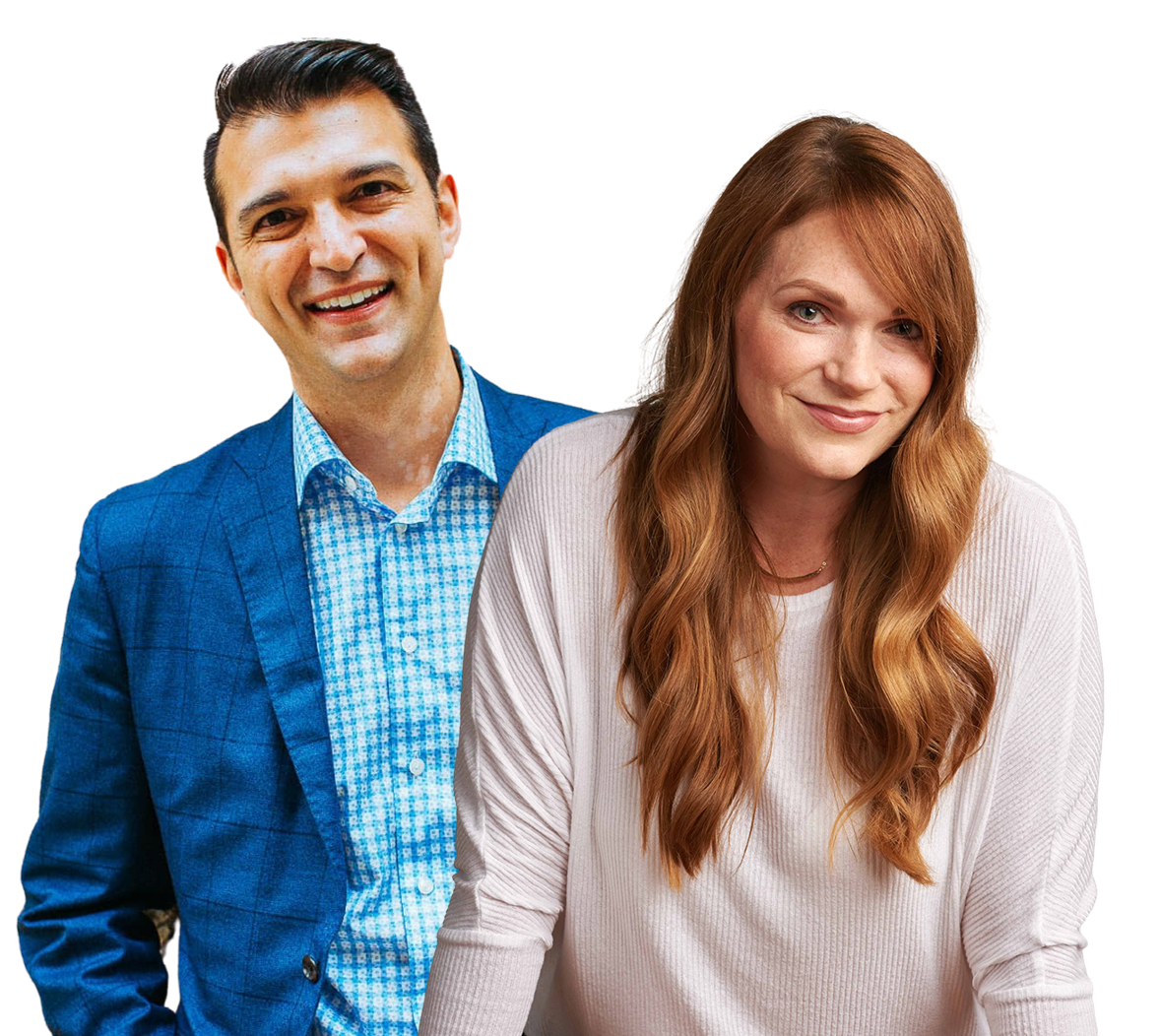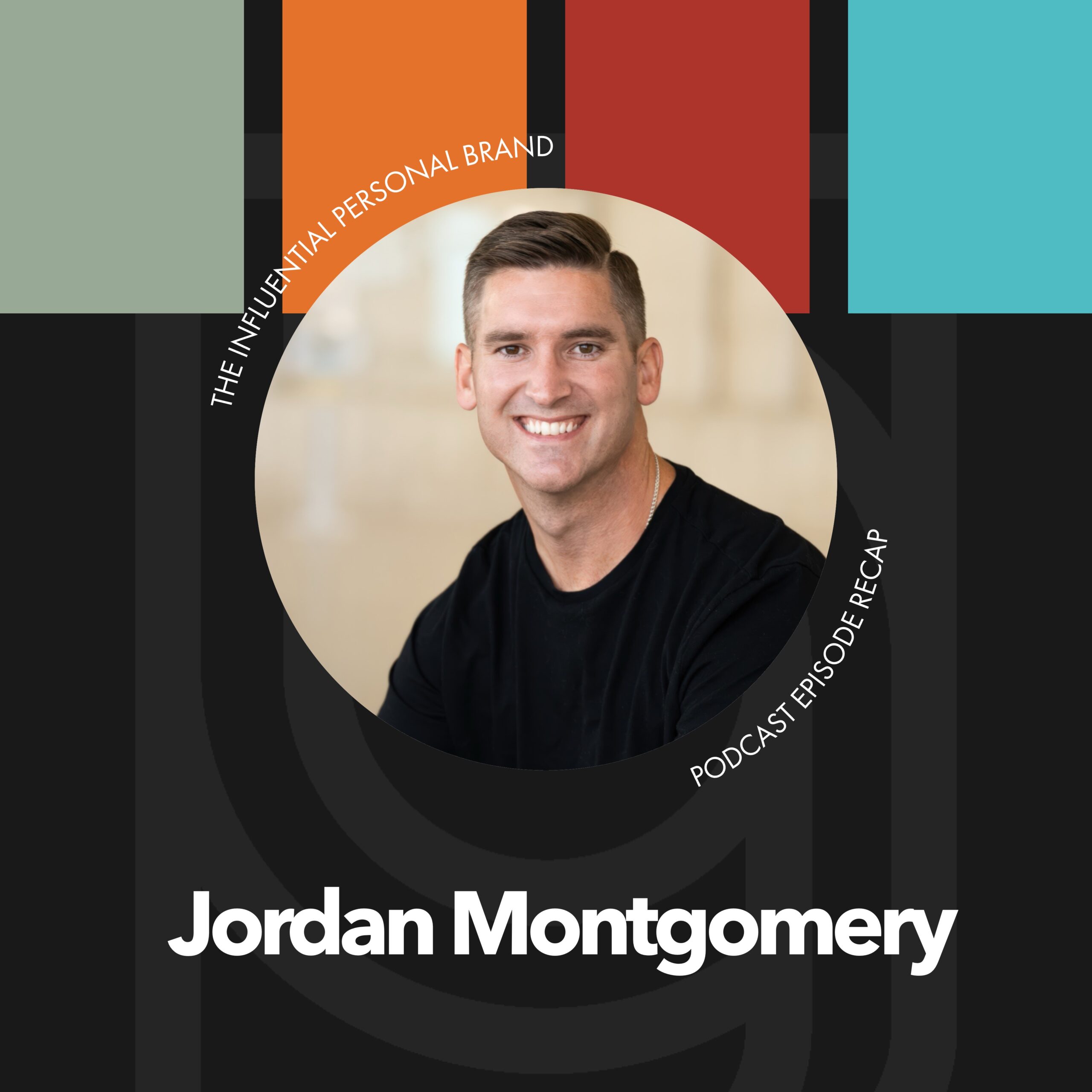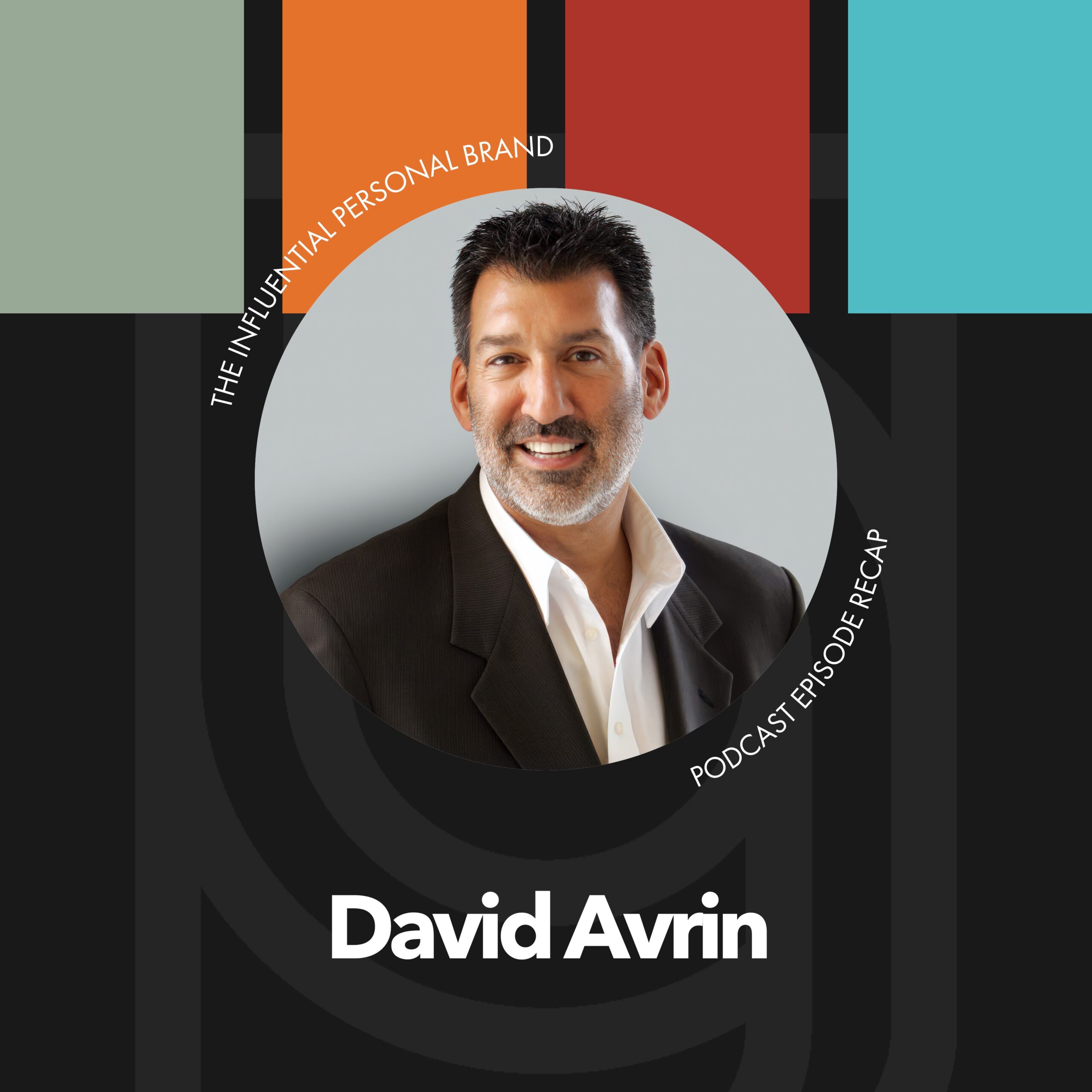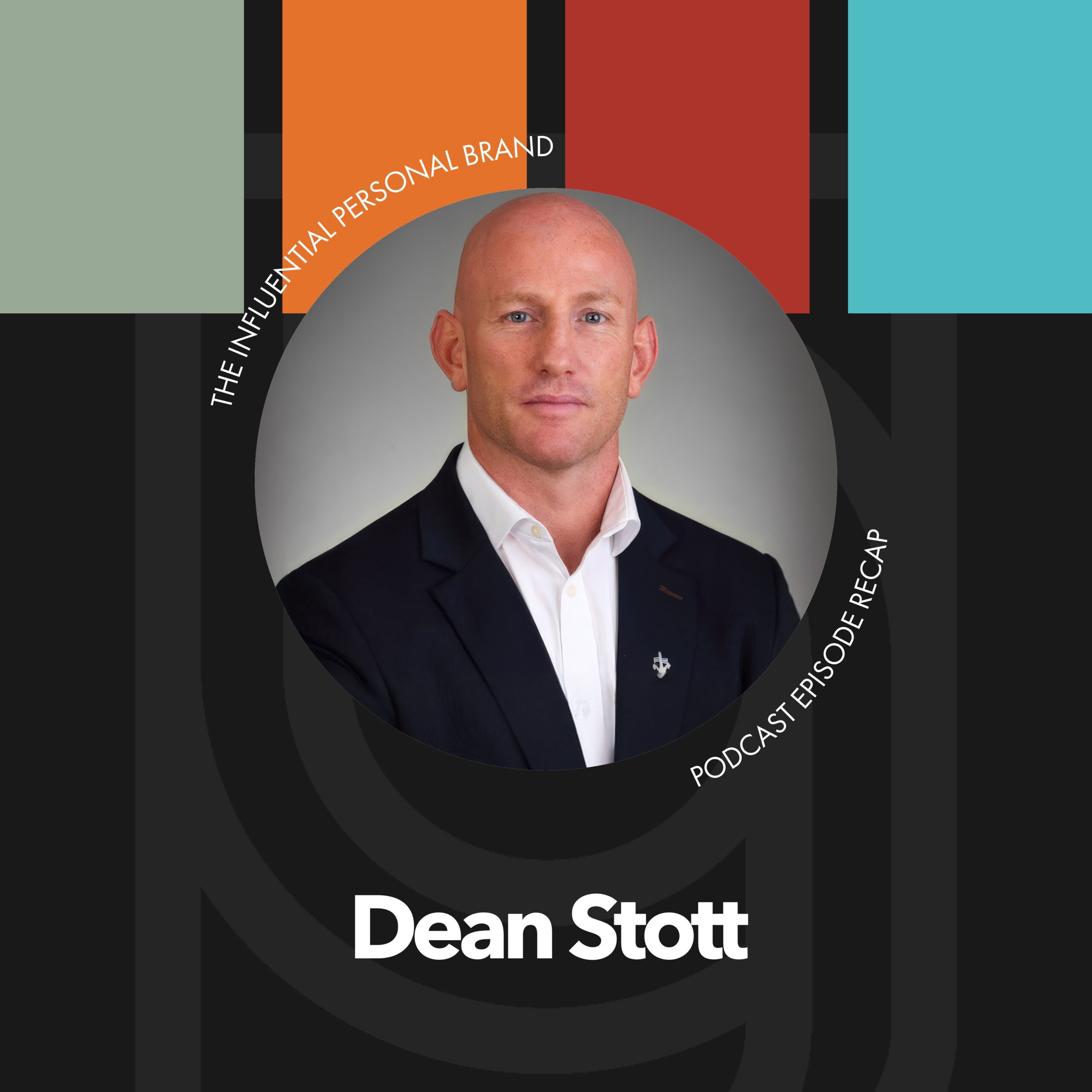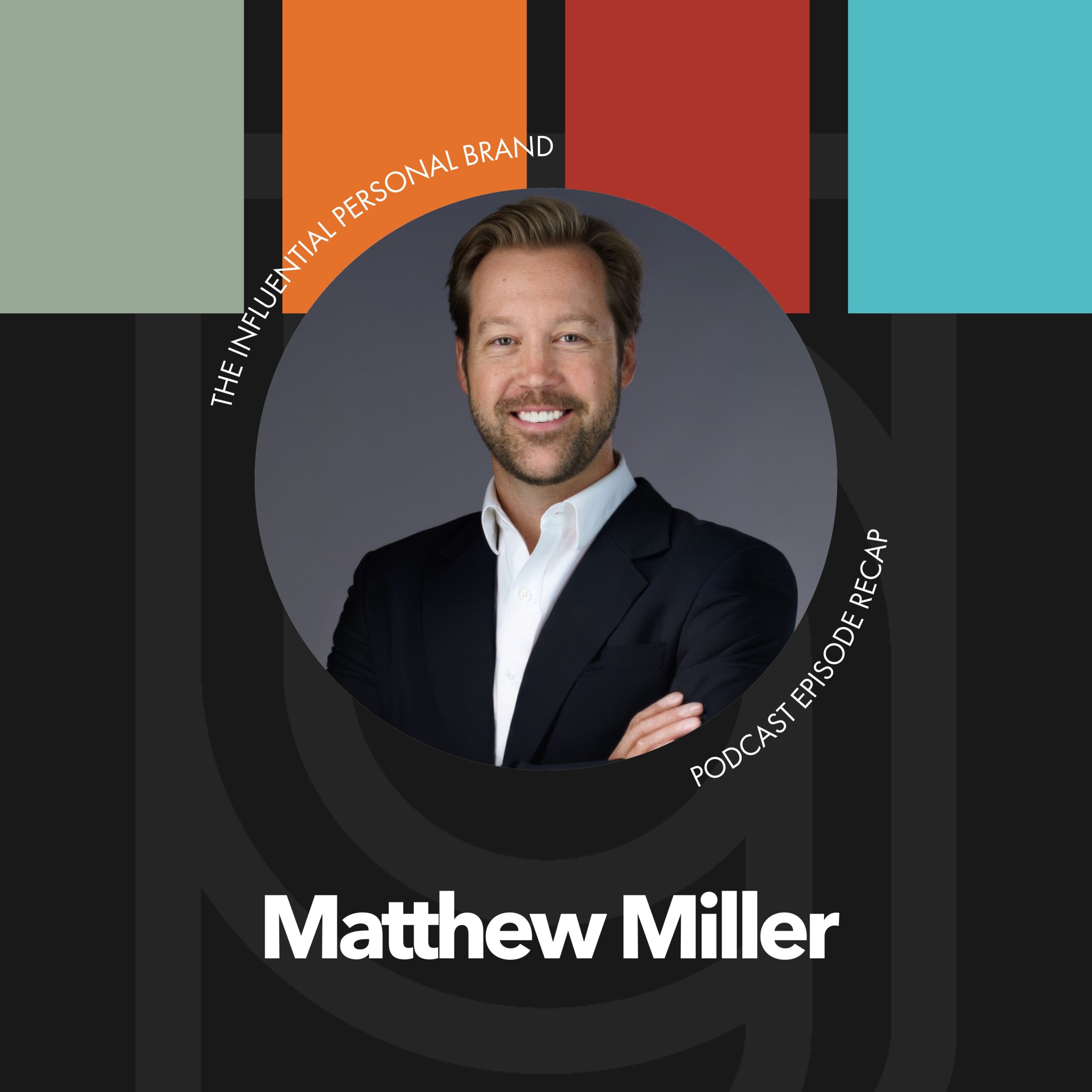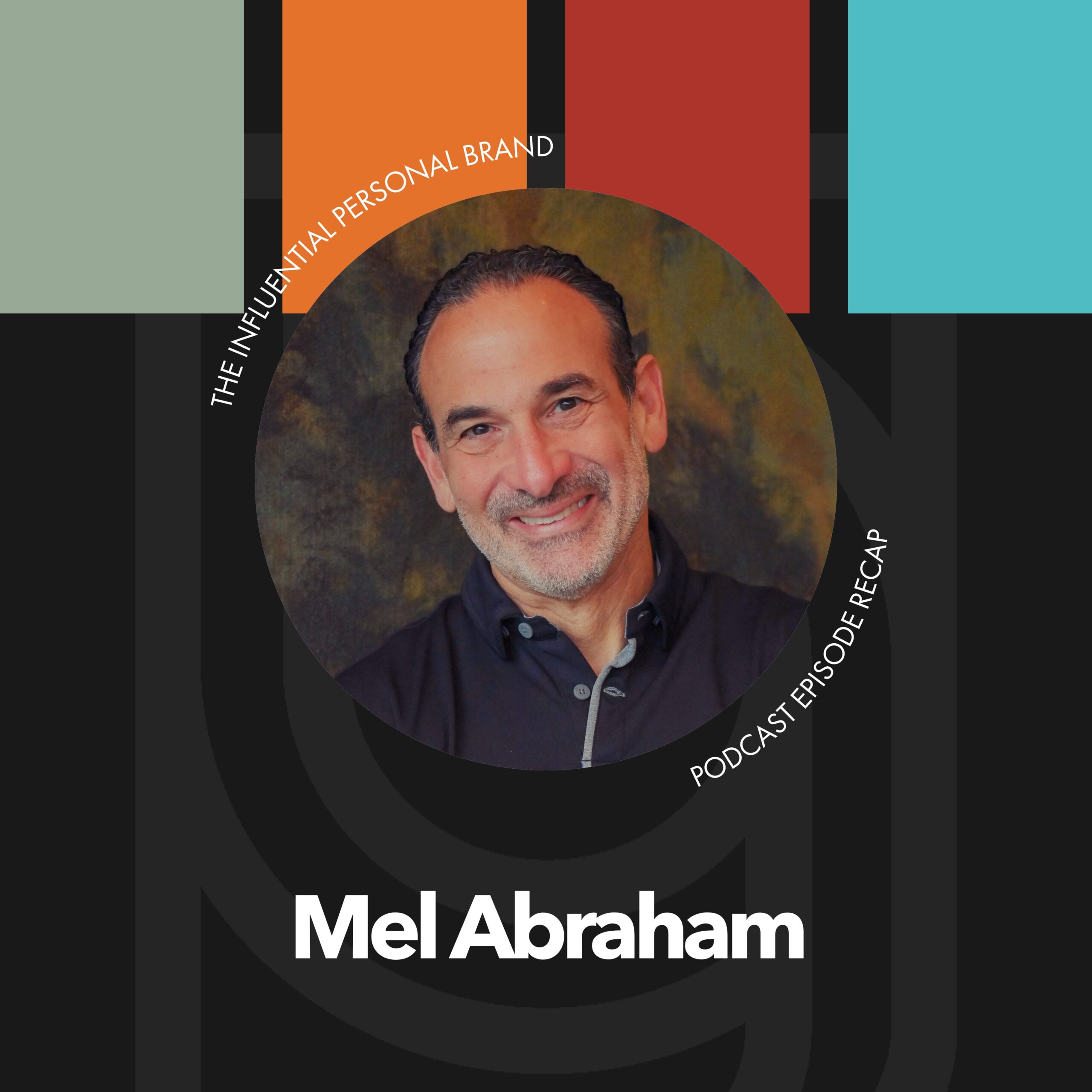RV (00:07):
Hey brand builder, Rory Vaden here. Thank you so much for taking the time to check out this interview as always, it’s our honor to provide it to you for free and wanted to let you know there’s no big sales pitch or anything coming at the end. However, if you are someone who is looking to build and monetize your personal brand, we would love to talk to you and get to know you a little bit and hear about some of your dreams and visions and share with you a little bit about what we’re up to see if we might be a fit. So if you’re interested in a free strategy call with someone from our team, we would love to hear from you. You can do that at brand builders, group.com/pod call brand builders, group.com/pod call. We hope to talk to you soon.
RV (00:55):
I love talking about books and selling books and writing books and making books and changing people’s lives with books. And that is why I’m excited to do this special recap edition of the influential personal brand podcast. I am breaking down the interview that I just did here with Naren Aryal. And he is someone that has been a friend of a friend for awhile, and now we’ve got some of our clients that have done projects with them. He’s becoming one of our preferred vendor partners that we’re we’re we’re using and introducing, introducing people to. And so it was, it was time for us to sit down and have a chat and it was awesome. I mean, I love it. You maybe aren’t familiar with Aaron and I, I think it’s like some of these, some of my favorite episodes are ones where it’s like, you, you don’t know these people because they work in the, behind the scenes part of this whole space and an industry and, and business of building personal brands, but they have the secrets, like they’ve got the knowledge and they’ve, they’ve got you know, the tactics and this episode was one of those.
RV (02:04):
And so definitely go back and listen to it. Of course, I’m going to share with you my top three takeaways and highlights from the, from our chat together. But I’m rolling solo today. We don’t have AJ and so you’re just going to get me, and I’ve got three big takeaways from this, from this interview, from this episode, but each of these have a ton, like I got so much out of this, which is, which is crazy, right? Like we’ve we do. We help people do book launches all the time where we teach how to do book launches. We’ve done book launches. Like we’ve got friends that are launching books, like constantly, almost every week. We have a friend doing, doing some type of a book launch. And, and yet I learned a ton and that shows you that there is a lot to learn about and it, it doesn’t happen by accident.
RV (03:01):
It doesn’t happen by luck it’s it’s strategy and knowledge like so many things. So here’s my first takeaway was very simple and high level, but even for me, this was so clarifying. It was the five parts of book production. And just going like this was so powerful. And these are like the phases of writing a book, which most of us don’t even think about and writing a book can be intimidating yet when you understand and break it apart and break it down into these five phases. Now there’s, there’s another phase of which is actually writing the book, which is the first step, which is what we help people with at brand builders group, right? Like we help you figure out what’s the problem you solve. What’s the message in one sentence, who are you writing to? And then we help you in our captivating content event, we help you do the thinking of the book, which is the, the, the most important part, in my opinion, is, is the original thought leadership pulling out your true expertise, organizing it into pillars, creating true intellectual property that is truly unique from you and not a regurgitation of stuff that other people say.
RV (04:14):
So we do that, but then what happens once you have a manuscript, right? That’s where a lot of people get lost and Naren broke this down. I thought so well, and just these five phases, these five parts of book production. So like once the manuscript is sort of done, then what happens? So first of all, there’s the editorial and all of these phases also have costs, right? So this is something you got to think about when you go, should I traditionally publish, should I self publish? Should I use a hybrid publisher? Like, you know a lot of our clients do on like maybe their first or second project. So there’s a lot to it. So editorial is, you got to edit the manuscript. It’s gotta be sharp and tight and clean and, and punctuated. And, you know, the thinking has to be good first, but then the writing has to be good.
RV (05:03):
And those are two different things. And so you’ve got editorial, which could be ghost writing could be coaching, could be editing, could be just proofreading. The second phase is the design. So there is, there is design, which is more than just the front cover. I mean, that’s what we think about is what’s going to go on the cover, which is part of it, but it’s also what goes on the back cover and what goes on the spine and what goes on the flaps. If it’s, if it is a hard cover book. And then also, how do you lay out the book in on the pages? Are there pull quotes? How big is the font? There’s something called the gutter, which is how close are the words to to the, how close to the words line up to the crease in the book, like all these things you don’t think about, how much margin should you have around the outside of your pages?
RV (05:52):
How many pages are there? What visuals have to be designed, right? Like there’s a whole of stuff in that second phase of design, then there’s publishing, which is a word that we hear a lot. And most people sort of assign, I think publishing is like a blanket statement for all of this, but actually publishing is really just one part of this. And so that’s why I think a lot of authors are let down when they find out how little marketing that publishers do, because they don’t realize how much work there is to do in just publishing the book. So that is the, the, the, the creation of the book, you know, finalizing the, the, the files, pulling it all together and then printing the books, listing them in, you know, the, the library of Congress, getting the ESPN, getting them uploaded into retailers and into distributors.
RV (06:46):
And it’s actually like inventorying the book into the system that, that makes books available world worldwide, or at least, you know, domestically then the fourth phase is warehousing and distribution. So when you publish you, you now have a bunch of physically printed books, and you’ve got that book is now available in a variety of places, but it’s not physically there. So now you have to physically get this book to these locations, to these retailers. Now if it isn’t, if it’s an online, even if it’s an online retailer like Amazon, they have to have your book in their inventory, or you have to use their like print on demand service if you’re self publishing. And so a lot of people do that, but you know, if you’re working with a publisher, whether it’s a a hybrid publisher or traditional publisher, someone’s got to print books and ship them somewhere, and then they gotta be stored and there’s costs associated with all of these steps, right?
RV (07:49):
And then finally there’s marketing and, and platform development. In our case, we would call it launching. And it is, it is the book launch. And this is where brand builders kind of steps back in a lot of times. And you know, one of our, one of our flagship events is called bestseller launch plan, where we teach the whole systematic step by step process of exactly what needs to happen to get people, to buy the book, which is an eight month process. We, our checklist starts eight months before publishing date before the pub date. So that’s just that fifth phase. So when you back out from there, okay, warehousing distribution, and then publishing and then design and then editorial, and then the manuscript creation, and then the ideas and flushing out all of that it’s, it takes years like it’s, it’s a couple years at least to do a book the right way, at least the way we would teach.
RV (08:42):
So that was powerful. Five parts of book production. And really there’s, you know, six, if you count the whole ideation, which is really important. And then that last stage platform development that happens years and years before, during, and after the book launch, which is actually my second takeaway. It was really great to hear, Narren talk about the importance of platform development because not every, not every author gets that. I mean, I’d say most authors don’t get that. There’s this myth that you’re going to write a great book, and then someone’s going to publish it and it’s going to become a best seller. It ain’t true. Like it’s not what it’s about. Y’all like the, the, the biggest bestselling books are not the best written books. The biggest bestselling books are not the best thinking books. They’re not the best advice. They’re not the best strategies necessarily.
RV (09:41):
They are the books from people who have the biggest audiences. Did you catch that the best selling books come from the people with the biggest audiences? That is what it’s about is you got to build an audience. And so, you know, the, the, one of the things that we’re always telling our members, right, are our coaching clients at brand builders group that we work with one-on-one is, we’re always saying, you’ve got to build the audience for the book before you build the book. So you even back that stage up to go, you’ve got to build the audience for the book. Just like when we, when we talk about the ideation of a book, so this is another thing. Cause because we do help our clients with creating original IP and their thought leadership, but we don’t deal with all the nitty gritty logistics of like making the, the book, an actual physical thing.
RV (10:37):
With the ideation we tell our clients build you know, build. So first of all, build the audience for the book before you build the book. And then we say, right, the book has a conclusion, not a hypothesis. So you shouldn’t publish a book and share. And this is our opinion. This is our opinion is to say it shouldn’t be ideas that you think might be true. That would be hypothesis. A lot of books fail because the author is writing a hypothesis. Well, what a book should be is a conclusion. It should be the final finished, tested work that you’ve tested on your clients on yourself. You’ve got data behind it. You’ve got actual case studies and strategies and stories. And it’s, it’s the conclusion. So that is with the ideas in the book, similar though, with your platform development, this is a big shift that authors need to make.
RV (11:32):
You know, if you ever have a chance of being a best selling author is you have to realize that you have to think of a book launch as the culmination of a relationship, not the Genesis of a relationship. A book launch is really the culmination of a relationship, not the Genesis of a relationship, meaning you don’t write a book and then people find out about you. People find out about you and then you write a book for them, right? You build the audience before you build the book. And if you wrote a book and it didn’t sell well, don’t misconstrue that as thinking like your book was a bad book, it wasn’t at all. It means you probably didn’t have the audience built for it. There’s a lot of very average mediocre books that sell lots of copies because they come from people who have the biggest audiences.
RV (12:23):
And so the first people don’t buy your book typically on first exposure, they buy your book because they’ve had lots of exposure to you consistently. And then they see your book and you go, you know what I’ve I’ve heard of this person. They’re really good. I like their stuff. I want to see what this is about. Now in reality, sometimes the book is the Genesis of relationships. But it’s usually because somebody who had a relationship with you bought the book and then told someone else, you gotta read this thing, right? So there are some people who find out about Rory Vaden still to this day, because someone said, you got to retake the stairs. This book will change your life. That happens a lot. But a lot of people it’s, it’s more of, they hear me somewhere. They see my Ted talk, they see me speak.
RV (13:10):
They hear me on a podcast interview or interview, or they, they stumble across me on social media, from hashtags or from they stumble across my blog because of search engine optimization, all these other things that we teach. And then they kind of follow, follow, follow, come into the email list, get loved on, you know, they subscribe to the podcast, we’re dropping value, value, value constantly. And then we release a book and they go, man, I I’ve learned a ton. I, I wanna, I wanna, I want to get serious about learning more from these folks. That’s how it works. That’s the culmination of a relationship in reality, it is a, can be the Genesis of a relationship, but you got to understand the flip in the switch in your brain that most authors think, okay, I will write the book and then people will find it and I will become famous.
RV (13:55):
Or the book will become a bestseller. No, no, no, no. That that’s not how it works. It’s the other way around. So build the audience before you build the book. And then the third thing which we talked about, which I love, which I do not do, have never done, don’t know anything about. And, and I’m going to start learning and diving into is Amazon specific strategy. And so there were two parts of this. One is the category, which we are aware of, but we never do this because we traditionally publish. And so our traditional publishers set the categories that it’s in, but if you’re self publishing, you know, Amazon has, I don’t know, thousands of categories and subcategories and subcategories of subcategories. And you, when you self publish, get to determine three categories to rank your book for. And what Darren said, which is a simple strategy, is go take two of those three and pick the categories you want your book to actually be in.
RV (14:55):
So that other people who are interested in those categories will find your book, but then take one of your three categories and choose a very non-competitive category so that you can become a best seller an Amazon bestseller in. And the way that happens is you become Amazon publishes bestseller lists that are updated every hour and they have bestseller lists that are done category by category. This is why there is an explosion in the world of bestselling authors. The vast majority of them are Amazon bestselling authors and there they are category best-sellers and often sub category of category bestsellers. But that’s a great, I mean, that’s a, that’s a great win. That should be a first, you know, when to go, you’re truly a best seller. Like according to Amazon, your book is the best selling book in that category. At least for an hour in compared to all the other books in that category.
RV (15:55):
So that’s a good strategy to do to legitimately be like, Hey, I’m, I’m a bestselling author. Now we’re going to teach you how to kind of, you know, if you really want that title best-selling author, you need to not just have the title. You want to have more, more and more credible versions of that, right? Like to be the number one book, Amazon worldwide as much more difficult, or even the number one in your sub, like your, your category, your like your main category, like business versus marketing versus marketing for dentists, right? Those are how they go. And then outside of Amazon, of course, there’s wall street, journal, bestseller, New York times, bestseller USA today, they’re all, you know, difficult to reach much more difficult than an Amazon bestseller because it’s only Amazon is just for an hour. And it’s compared to all those other books in the category.
RV (16:46):
Anyways, that said, I think it’s a great strategy, brilliant, simple, easy there it’s completely authentic and validated, like you’re the best seller in your category. So choose one of your categories strategically for that purpose. So simple, so simple. And then the other thing that he said, and this is one I’ve never done is by, by bid on the ads for the terms of books that are like yours in your category in Amazon. So Amazon is a search engine, just like Google is a search engine, just like YouTube is a search engine and they make money off advertising. And you apparently we can bid on terms. And so if you say, I want to bid on this term when people, you know, look for this book, show them my book as well. I think that’s pretty clever way to use advertising spend. So it’d be tricky to figure out how many of those convert and do you make your money back on that?
RV (17:40):
But I think this is this is a world we’re going to get into. So holy moly, like that’s a lot of information that I just dropped and spit at you for the last few minutes, but there’s so much to learn. This was such a practical podcast. I picked up a ton of stuff, helped me organize my thinking, go back and listen to the whole episode and, and just know like the, if you’ve got the dream of being a bestseller, it’s possible, it’s probable. I mean, it’s very likely if, if you stick around here and you follow the things we’re teaching and the things that our guests are doing, that you will do it because it’s very systematic. It’s not easy, but it’s fairly predictable and systematic. If you’re willing to do the work, as long as you know exactly what the path is. And that’s why we’re here every week is to help you find the path, know the path. And then at some point, our invitation to you is to join and actually become one of our paying members where we’re working with you. One-On-One and we’re actually helping you do the path for your own personal brand, but either way, keep coming back week after week. We’re so glad you’re here. We’ll catch you next time on the influential personal brand.



